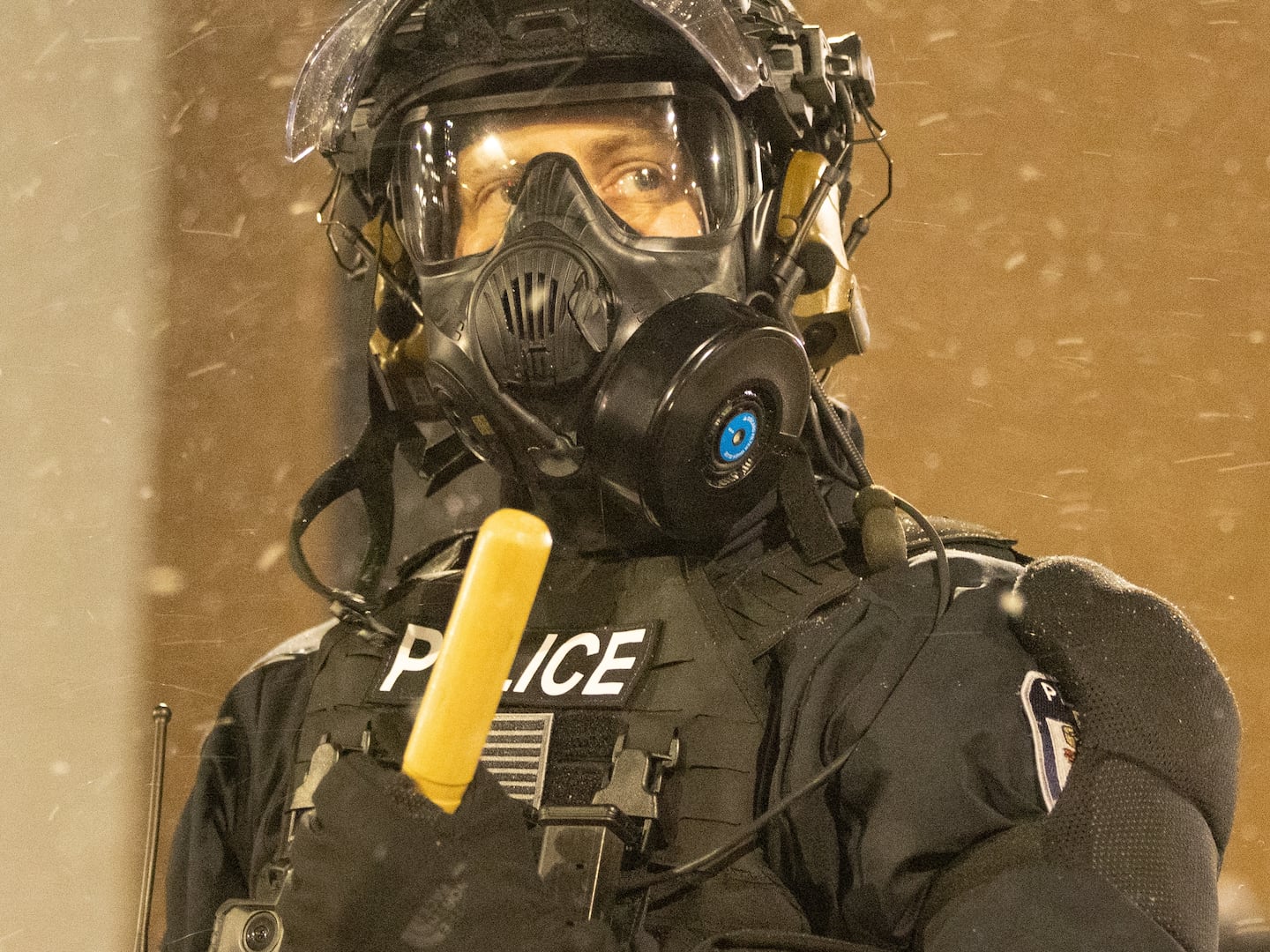ROME — This isn’t the way it was supposed to be. Western backers of the Libyan uprising against dictator Muammar Gaddafi four years ago imagined that with him out of the way the door would be open for some sort of democracy or, at least, some serious respect for human rights.
To be sure, the final demise of Gaddafi himself was a gruesome dénouement. His captors dragged him dazed and bloodied from a desert culvert west of the Libyan town of Sirte and killed him with ferocious violence. Initially the revolutionary victors lied about the tyrant’s fate, claiming he had died from injuries sustained in a firefight, but videos emerged that showed him partially stripped, beaten by rebels and stabbed or sodomized with a bayonet or stick in the rear before he was shot.
Western backers of the uprising tut-tutted a bit, but the country’s new leaders quickly reassured them this was just a sad misstep; the new Libya would observe human rights meticulously and could be trusted to hold fair trials. There could be no comparison with Gaddafi’s four-decade-long republic of fear, where torture was a fine art used with maniacal zeal on liberal and Islamist activists alike—or anyone, for that matter, disliked by “The Family.”
Four years on now, more videos of rights abuses are emerging willy-nilly, and it’s clear the appalling brutishness of Gaddafi-run Libya, with its culture of fear and vengeance, has carried over into the practices of those who brought him down.
Perhaps most disturbingly, many Libyans don’t seem to care, or they justify the viciousness by pointing to the brutality of their foes, as if somehow that absolves them.
This month, a video posted online apparently showed guards beating Gaddafi’s playboy son Saadi on the soles of his feet during an interrogation at al-Hadba prison. Other inmates in adjacent rooms can be heard screaming and Saadi, his head shaved, and wearing a green tracksuit, is made to listen to the torments his fellow detainees are enduring before being blindfolded and asked whether he wants to be thrashed on his rear or on his feet.
“I swear to God, if you give me rest I will give you all the information,” he says at one point in the nine-minute edited video. But the aim of the abuse seems to have nothing to do with extracting information and everything to do with exacting revenge and humiliation.
And the reaction among Libyans? Mostly a collective shrug.
“Saadi has blood and corruption on his hands...hitting him on his feet doesn’t seem like much to complain about,” wrote one Libyan on a closed Facebook forum. “Someone who commits a crime pays the price. The fact that he is punished is not oppression.”
A Libyan-American who happens to be a practicing lawyer chimed in: “To all the human rights activists, who gives a DAMN what happens to this guy? All this BS sympathetic outpouring is nonsense. Whip this guy’s feet until they bleed baby! For every woman raped, for every child killed, for every family destroyed!”
But it isn’t only the Gaddafi family and their henchmen who are bearing the brunt of abuse. Casual, programmed brutality has seeped into every nook and cranny of divided Libya. Torture of prisoners and foes is routine by the many militias, including those loyal to either the rump parliament in the Libyan capital controlled mainly by Islamists or the internationally recognized authorities camped out in the eastern towns of Tobruk and Bayda.
Abuse is systematic, an involuntary reflex reaction, an expression of rage and frustration prompting a downward spiral, as several rights reports have documented since Gaddafi’s ouster.
As their high revolutionary hopes have been dashed and as the country struggles with militia and crime-based violence, the rise of an ISIS affiliate and sharp ideological divisions galore, Libyans seem hell-bent on continuing a descent into grotesque brutality, distancing themselves from the noble objectives of the 2011 uprising.
The brusque disdain for human dignity can’t be disguised even when viciousness is meant to be concealed from visiting Western journalists or rights workers. No, they don’t beat migrants held in detention centers in front of you, but the sticks are in plain view, the sharp, overbearing commands are heard and detainees cower as guards approach, expecting a slap at best or a beating or worse, as I saw in touring holding centers earlier this summer.
The prosecutor general of the Tripoli-based authority, who has responsibility for al-Hadba prison, has promised to launch a probe to identify the guards in the video recording of Saadi’s treatment and “to take the necessary legal action against them.” Few believe much, if anything, will happen to them. These are just words for overseas consumption to placate the West.
Gaddafi taught Libya that power has its own unchallengeable prerogatives and, alas, Libyans appear to have learned that lesson all too well.
Last week videos were posted of the abuse of captured ISIS-affiliated fighters, who are thrown off the back of trucks, punched, beaten and slapped amid raucous laughter—all clearly in preparation for much greater abuse to come.
Amnesty International reports that in the past year 378 people have vanished without a trace, abducted in unprecedented numbers for reasons including political beliefs or membership of this or that tribe or just for old-fashioned ransom. Among those abducted were 49 foreign nationals, including 21 Egyptian Christians kidnapped and beheaded by ISIS near Sirte in the winter.
The Libyan Red Crescent has come up with a figure of 626 abductees—508 of those in Benghazi, where Islamists have sought to clear the city of civil society activists and supporters of the Operation Dignity military offensive launched against them by General Khalifa Hafter, the head of the armed forces of the internationally recognized government.
But Amnesty notes in its report: “Supporters of each side of the conflict have also carried out numerous reprisals involving abductions, unlawful killings and attacks against civilian property.”
Western powers are not helping by pulling their condemnatory punches. There has been scant censure from Western capitals of the airstrikes and artillery bombardment of civilian targets by Hafter, for example. Amnesty has dubbed the indiscriminate shelling a war crime. Western condemnation has been withheld often because of the fear it will undermine the UN-mediated peace talks aimed at setting up a unity government, one able to restore the rule of law.
But with the torture demon so deeply embedded in Libya’s psyche, it will take more than a unity government to exorcize it. What is needed is a determined cultural change that stops Libyans from shrugging their shoulders when their foes “get what they deserve.”
“Look around you and what do you see?” a Libyan writes on one of the threads about abuse. “Pillage, plunder, human rights violations, arbitrary arrest, torture, execution, unfair trials, illegal detention, war, terrorism, foreign interference, lack of autonomy, lack of sovereignty, squandering of resources, and much more ,,, and what about the internal psychological scars of the traumatized.........all for what? For the few who just want to be the next dictators, worse than any Gaddafi ... now every single Libyan is the loser.”






